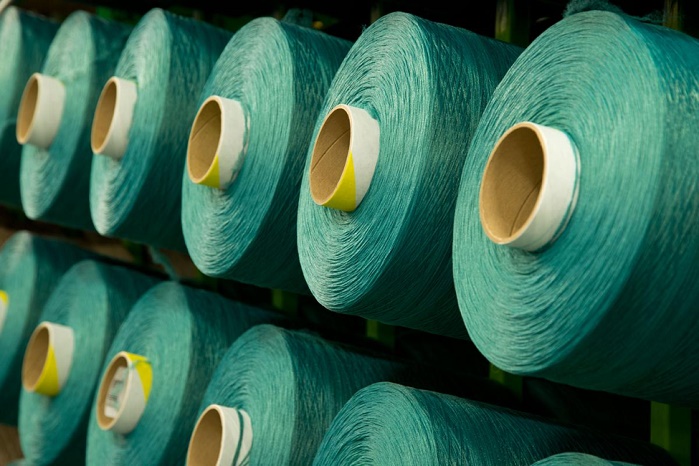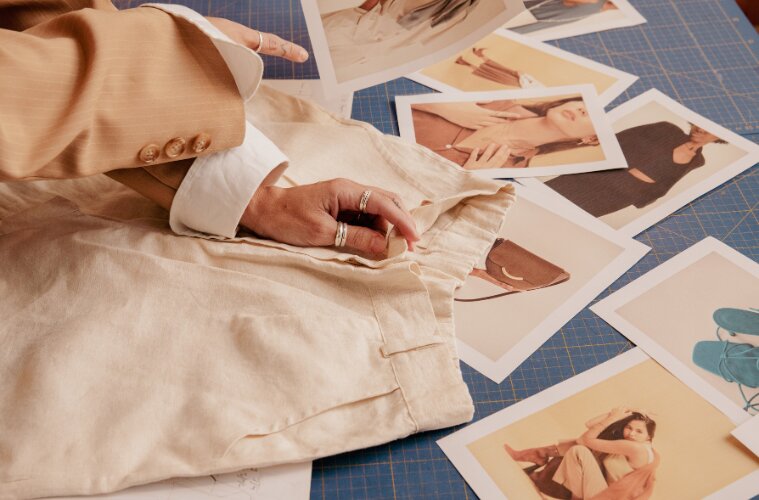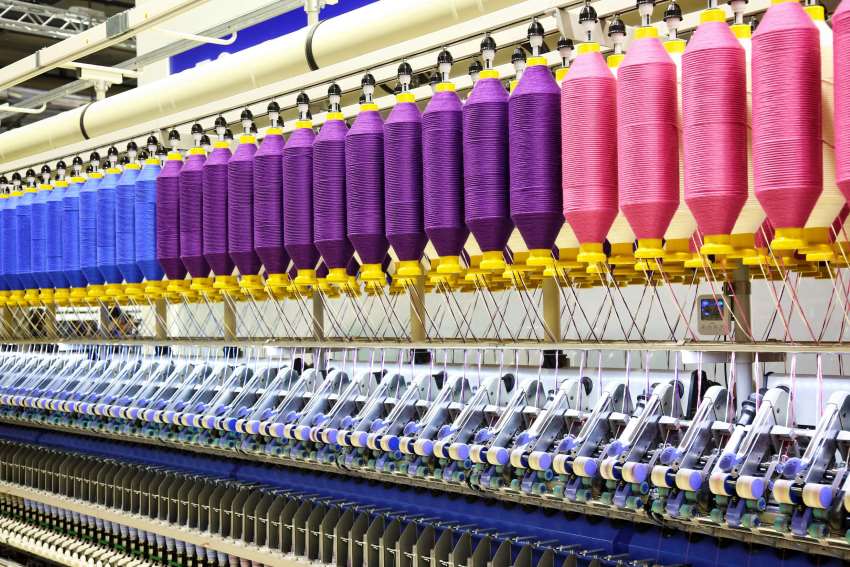FW
The India-EU free trade agreement (FTA) will soon be discarded. Although the EU has asked for two weeks to decide on future course of action, sources have concluded that resumption of negotiations would be a fruitless exercise. There have been no negotiations since 2013. In 2017, both at India-Germany summit in June and the India-EU summit in October, there was an attempt to restart negotiations. But nothing happened.
Indian negotiators are of the opinion that India might be better off waiting for Brexit to happen before looking at EU. The UK has the lion's share of India-EU trade and investment, and the nation is keen on working out a trade deal with India as they near their separation date. On the other hand, the UK's departure might make FTA talks with EU easier as the nation is biggest roadblock in denying Indian entry into EU.
Cordura in partnership with Carhartt has launched a line called Full Swing Steel. This has a collection of three pairs of pants and a jacket. The line delivers flexible, versatile and durable solutions for carpenters, roofers, aircraft and diesel mechanics, landscapers, and engineers.
Engineered Cordura fabric technologies in combination with ergonomically placed kneepad pockets were incorporated to provide an enhanced level of comfort and protection. The material, knee pads, fit, flex and durability are amazing, and the pocket layout and reinforced areas were very well thought out. The Full Swing steel multi-pocket pant not only has extra rugged stretch Cordura Nyco fabric for mobile durability it has additional Cordura fabric reinforcement in critical wear areas.
Established in 1889, Carhartt, based in the US, is a global premium workwear brand with a heritage of developing rugged products for workers on and off the job. Cordura is a brand belonging to Invista, one of the world’s largest integrated polymer, intermediates and fibers businesses. Known for its resistance to abrasions, tears and scuffs, Cordura fabric is a primary ingredient in many of the world's leading high-performance gear and apparel products ranging from luggage, upholstery and backpacks to footwear, military equipment, tactical wear, workwear and performance apparel.
Cinte Techtextil will be held in China from September 4 to 6. A number of leading international and Chinese brands across the fair’s 12 product application areas will feature at the event with an expected 500-plus total exhibitors from around 20 countries and regions.
Lenzing will feature its brand Veocel. This is a premium range of nonwoven fibers for daily care, which provides the nonwoven industry with fibers that are certified clean and safe, biodegradable, from botanic origin, and produced in an environmentally responsible production process. Products in this range can be applied to a multitude of uses including baby care, beauty and body care, intimate care and surface cleaning.
Johns Manville from the US will showcase polyester spunbond, micro glass fiber nonwoven, hybrid nonwoven, glass fiber needle mat and glass microfiber product lines, among others, at the fair. JH Ziegler from Germany offers products for acoustic absorption in automotive interiors and exteriors, nonwoven foam composites for leather lamination, needle-punched nonwovens, foam nonwoven composites, laminated nonwovens and natural-fiber nonwovens.
TDF Nonwovens from China will display specialties like polyester spunbond geotextiles, polyester filament roofing carriers, filter nonwovens, high-strength coarse denier polypropylene spunbond geotextiles and medical and health nonwovens. Perlon from Germany will present a PET based monofilament, HighGrip, which guarantees long-lasting efficiency of conveyor belts, and is available in various types with different tribological characteristics.
Bangladesh, Vietnam and Indonesia are prominent markets for Indian cotton.
Traditional buyers such as China and Pakistan have cut down on their purchases.
Exports to China fell by 55 per cent between 2016-17 and 2017-18. Exports to Pakistan remained almost flat in 2016-17 and in 2017-18.
Bangladesh is now the biggest buyer for India. More than 25 lakh bales have been bought till now.
However, higher prices are hurting exports. For most of the time last year, Pakistan had banned imports from India. But when Pakistan wanted the fiber, purchases were made around March-April. But cotton exports are again being banned by Pakistan.
The current rate of Rs 49,000 per candy seems to be high for the trade considering the grim situation in the export market.
Forward contracts are also lackluster. For November-December forward contracts have been executed for about five lakh bales. Uncertainty on the crop and yield is impacting the price scenario.
On an all-India level, about 40 per cent cotton sowing is yet to take place as rains in most regions were delayed.
Though India remains the largest exporter of cotton yarn in the world, the country’s share declined to 25 per cent in 2017 from 30 per cent in 2015.
Stoll has built a strong business across Africa. Its business activities across the vast African continent have seen the firm support knitwear production in a number of different markets. For more than four decades, Africa has played a significant role for Stoll. In South Africa and in markets such as Kenya, Stoll machines, built in the 1950s and 1960s, are still running.
Stoll, based in Germany, is a flat knitting machine builder. The company has successfully served markets such as South Africa, Mauritius, Madagascar and the North African states, including Libya, for many years.
Stoll has played a major part in the growth of South Africa’s high fashion sector. Most South African department stores source knitwear that has been produced on the east coast. Sourcing companies mainly rely on knitters equipped with Stoll machines as they appreciate the great flexibility of proven Stoll technology. Even new start-ups, most of whom have had no experience of flat knitting machines, are profiting from luxurious knitwear by investing in Stoll machines.
Together with local partners, Stoll assures a high level of customer satisfaction in all required fields. Its common aim is to further grow together with existing Stoll customers and potential customers.
The 11th Colombo International Yarn & Fabric Show 2018 (CIFS 2018), Sri Lanka’s premier international exhibition featuring yarn, fabric and accessory manufacturers & suppliers, will be held from September 27 to 29, 2018 at Sri Lanka Exhibition & Convention Centre (SLECC), Colombo, Sri Lanka. The expo will focus on the Sri Lankan textile and apparel Industry. Concurrently, two related exhibitions, viz, 2nd Sri Lanka Textile Garment Technology & Machinery Int’l Expo 2018, and 3rd Sri Lanka International Air, will also be held.
The 11th CIFS 2018’ expo is being timed at the right moment with Sri Lanka further investing in setting up new apparel factories and expanding their present capacities to match the fast-growing exports, will cater to the requirements of the ever-growing apparel industry of Sri Lanka showcasing cotton & synthetic fabrics (woven / knit), natural fabrics (woven/knit), yarn & fibre, fancy finishing, home textiles, accessories, CAD/ CAM & E-business.
Garment manufacturers in Gujarat have predicted a rise of 10 per cent in price of garments after the Central government raised the Minimum Support Price (MSP) on cotton. The government raised MSP on medium-staple and long-staple fiber cotton by 28 per cent and 26 per cent, respectively. The MSP of cotton (medium staple) was raised to Rs 5,150 per quintal from Rs 4020 per quintal and that of cotton (long staple) to Rs 5,450 per quintal from Rs 4,320 per quintal.
Manufacturing units under GGMA mostly produce cotton garments for men. According to GGMA members, even larger cotton processing units who have stocked up low price cotton will tend to increase prices, which in turn will be passed on to the customers at the end of the value chain.
The selling rate of cotton shirts manufactured in Ahmedabad currently ranges between Rs 150-550 for a single piece in the wholesale market. Similarly, the prices of cotton pants produced by the garment manufacturers are about Rs 350-650, while that of denim is between Rs 450-900.
"The United States Fashion Industry Association (USFIA) has released the fifth annual Fashion Industry Benchmarking Study, a survey of executives from nearly 30 leading fashion brands, retailers, importers, and wholesalers, including some of the largest brands and retailers in the country. Done in conjunction with Sheng Lu, Associate Professor at the University of Delaware Department of Fashion & Apparel Studies, the survey quizzed respondents on their business outlook, sourcing practices, utilisation of Free Trade Agreements and preference programs, and views on trade policy."
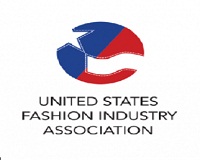 The United States Fashion Industry Association (USFIA) has released the fifth annual Fashion Industry Benchmarking Study, a survey of executives from nearly 30 leading fashion brands, retailers, importers, and wholesalers, including some of the largest brands and retailers in the country. Done in conjunction with Sheng Lu, Associate Professor at the University of Delaware Department of Fashion & Apparel Studies, the survey quizzed respondents on their business outlook, sourcing practices, utilisation of Free Trade Agreements and preference programs, and views on trade policy.
The United States Fashion Industry Association (USFIA) has released the fifth annual Fashion Industry Benchmarking Study, a survey of executives from nearly 30 leading fashion brands, retailers, importers, and wholesalers, including some of the largest brands and retailers in the country. Done in conjunction with Sheng Lu, Associate Professor at the University of Delaware Department of Fashion & Apparel Studies, the survey quizzed respondents on their business outlook, sourcing practices, utilisation of Free Trade Agreements and preference programs, and views on trade policy.
The “protectionist trade policy agenda in the United States” was ranked as the top challenge for the US fashion industry for the second time in a row. More than 60 per cent respondents ranked this issue among their top five business challenges, with more than one-third ranking it first or second. From 2014 and 2016, respondents consistently ranked trade protectionism between eighth and eleventh position.
Rising cost ranks high
The pressure of “increasing production or sourcing cost” was ranked as one of the top five challenges by about 54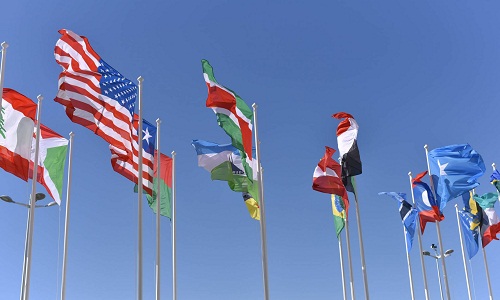 per cent executives, a notable increase from 34 per cent in 2017. This cost could be rising in absolute terms and intensified trade tensions caused by protectionist policy agenda may force companies to switch to more expensive sourcing destinations.
per cent executives, a notable increase from 34 per cent in 2017. This cost could be rising in absolute terms and intensified trade tensions caused by protectionist policy agenda may force companies to switch to more expensive sourcing destinations.
A positive picture
Executives are more confident about the five-year outlook for the US fashion industry in 2018 compared to a year ago, although confidence has not fully recovered to the level seen in 2015 and 2016. Almost, 100 per cent respondents plan to hire more employees in the next five years, compared to 80-85 per cent in previous studies; market analysts, data scientists, sustainability/compliance related specialists or managers, and supply chain specialists are expected to be the most in-demand.
The survey was conducted between April 2018 and May 2018. In terms of business size, 76 per cent respondents have more than 1,000 employees, and around 64 per cent with more than 3,000 employees; the findings well reflect the views of the most influential players in the US fashion industry.
Eliminating barriers
The United States Fashion Industry Association (USFIA) is dedicated to fashion made possible by global trade. USFIA represents brands, retailers, importers, and wholesalers based in the United States and doing business globally. Founded in 1989, USFIA works to eliminate tariff and non-tariff barriers that impede the fashion industry’s ability to trade freely and create jobs in the United States. Headquartered in Washington D.C., USFIA is the voice of the fashion industry in front of the US. government as well as international governments and stakeholders. With constant, two-way communication, USFIA staff and counsel serve as the eyes and ears of our members in Washington and around the world, enabling them to stay ahead of the regulatory challenges of today and tomorrow.
Vietnam’s apparel exports to member countries of the Comprehensive and Progressive Agreement for Trans-Pacific Partnership (CPTPP) rose 16.49 per cent in the first half of the year. Although the CPTPP has yet to come into force, exports to its member countries increased 23 per cent. The respective growth rates in Japan, the European Union, South Korea and China were 24.6 per cent, 13.2 per cent, 28 per cent and 50 per cent.
Export turnovers were recorded for many high-demand products across major export markets. The United States remained the largest market for Vietnam’s apparel products, accounting for over 46 per cent of the total turnover.
Vietnamese enterprises have adapted to changes in export markets and applied modern technologies to production. Some have invested in robots, each of which can replace up to 60 workers, enabling the company to better meet export orders.
However, the sector is under pressure, prompted by the US-China trade war. It now faces risks involving the exchange rate because of the devaluation of the Chinese yuan. For sustainable development of the sector, enterprises are enhancing their competitiveness with technological applications to complete orders in shorter periods of time and provide quality products for customers, besides working to meet environmental and labor requirements.
Impetus Bioscience has partnered ICA Bremen for cotton DNA testing services. The developments were made over the last few months in response to increasing demand for transparency within the supply chain and from consumers.
The venture has expanded partners’ testing capabilities to identify many changes in the DNA of cotton, most significantly, the distinction between the lower and higher percentage of genetically modified cotton present in the sample. The analytical process involves exact quantitative measurements made possible by using state-of-the-art real-time polymerase chain reaction technologies alongside other testing methods.
Polymerase chain reaction is a method of making multiple copies of a DNA sequence, involving repeated reactions with a polymerase. Specific DNA sections of genetically modified insect resistant cotton can now be identified and quantified. Previously, a positive screening result indicated a genetic modification, which only allowed a positive or negative diagnosis of genetically modified cotton. These new methods of analysis allow the immediate and definite classification of genetically modified plants.
As the degree of processing of a sample increases, the limit of quantification always decreases - so the sensitivity decreases. However, the latest developments now also allow the examination of the end product, which previously couldn’t be analysed. ICA Bremen is an international center of excellence for cotton testing, research and quality training.


